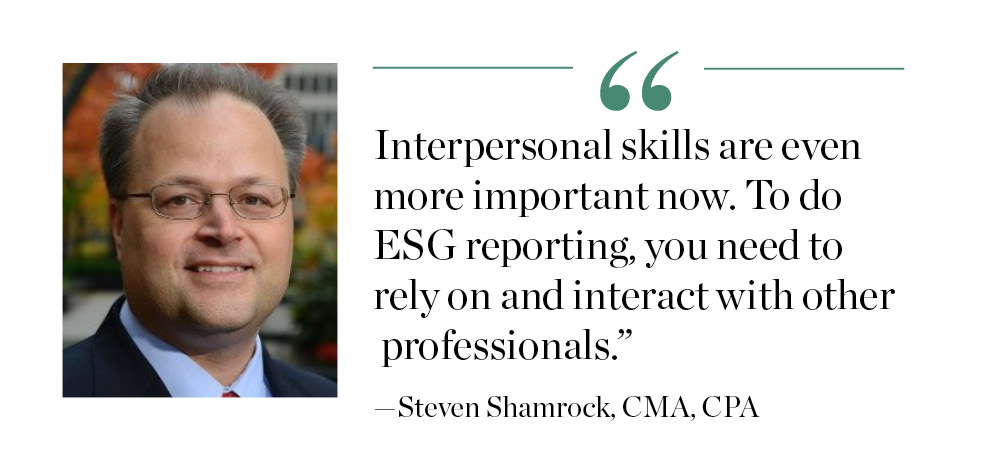Ready? Set. Plan! One way or another, climate-related disclosure requirements are on the way from the U.S. Securities & Exchange Commission (SEC). So, while legal challenges could force the agency to make some changes to the rules issued in March, finance leaders shouldn’t let that uncertainty get in the way of laying the groundwork.
“Don’t wait,” said Su Rim, CPA, assurance senior manager and co-leader of the environmental, social, and governance (ESG) practice at BPM. “Whether they look like the current SEC rule or totally different, climate-related disclosures are coming.”
Slated to begin being phased in by early 2025, the new regulations apply to SEC-registered domestic and foreign companies and are aimed at addressing the climate-driven concerns of investors and consumers in three ways. First, public companies will need to include how they identify and manage their climate-related risks and how those risks impact their business in their annual report’s narrative disclosures. Second, companies must disclose any material effects of severe weather events and other natural disasters, such as fires, floods, and tornadoes. And finally, some larger companies will need to publish their Scope 1 and 2 greenhouse gas emissions.
As Strategic Finance previously reported, the new requirements will influence financial reporting under Generally Accepted Accounting Principles and International Financial Reporting Standards. That means company leaders must embed climate considerations across the enterprise—into their governance, strategy, risk management, metrics, and targets—to truly enable effective ESG reporting.
Here are four ways accounting and finance professionals can kickstart their efforts:
1. Survey the Data Landscape.
The disclosures will require teams to capture an avalanche of information. The good news, especially for larger companies? “A lot of this data exists already,” said Rim. Yet, finance teams will still need to track down that data, whether from internal reports or the company website. “The challenge is pulling it all together and getting it in one place,” Rim said.
That’s where accounting and finance professionals come in: determining where that information comes from and how often it’s collected to help establish a reporting baseline. From there, it’s all about identifying sustainability data gaps.
“Finance people are accustomed to having processes and controls for data. But a lot of times, the ESG information provided voluntarily might not have the rigor of financial reporting—that’s an element that the finance function can bring to the table,” said Kristi Chapman, CPA, EY Americas ESG reporting leader and partner at EY.
Case in point: Half of the world’s largest companies have committed to achieving net-zero carbon emissions, according to a Net Zero Tracker analysis. And many tout those kinds of sustainability goals on their websites. In the future, the SEC will require documentation for such goals.
“The finance function will help reconcile voluntary and regulated reporting,” Chapman said. “Finance functions have accumulated data for years and years in a controlled, auditable way. Now they need to prepare sustainability data in a controlled, auditable way.”
2. Break Down Organizational Silos.
To ensure climate-related reporting and auditing measures up, finance teams will need to partner with sustainability teams—which are often isolated. This will require intense collaboration between finance and other functions. One way to get everyone on the same page? Form an executive steering committee to oversee ESG reporting with representatives from every team, including finance and accounting, as well as investor relations, legal, procurement, marketing, and sustainability. The committee can define reporting roles and responsibilities as well as lead meetings to build consensus and share updates, such as business activities that could impact regulatory reporting.
Forging a common vision for climate reporting can help avoid other potential breakdowns too. For example, at many companies, sustainability data lives across departments, so the procurement department might have much of the emissions data. Forming a cross-functional committee can raise reporting expectations across the supply chain and help you to “understand where all the data lives,” Rim said.
The emphasis on deep collaboration also means accounting professionals will need to flex their soft skills—and perhaps even invest in some upskilling through courses and certifications (See Resources to Accelerate the Learning Curve).
“Interpersonal skills are even more important now,” said Steven Shamrock, CMA, CPA, finance and accounting consultant at Resources Global Professionals. “To do ESG reporting you need to rely on and interact with other professionals.”
3. Reframe Your Mindset.
Dealing with objective facts, such as revenue within a certain quarter, is second nature for accounting and finance professionals. But SEC disclosure rules will require them to work with more subjective forward-looking realities related to myriad climate-related impacts. And that will force a major shift in their thinking.
Consider materiality. The SEC rules focus on information that, if omitted or included, can potentially tarnish a company’s reputation. “How we measure materiality through an environmental perspective, for example, is something that finance hasn’t contemplated before,” Chapman said.
Finance teams will need to establish how these terms are defined and how those definitions help them connect the dots. When it comes to measuring and reporting greenhouse gas emissions, finance teams will need to assess more nuanced metrics, including the company’s impact on the world around it.
“The emissions you count and the way you count them is a policy decision,” Shamrock said. “With ESG reporting, there’s a choice. With traditional accounting, there’s no choice.”
In addition, the SEC disclosure rule will challenge accounting professionals to provide qualitative scenario analyses of future risks that could impact the company and its revenue. “That’s uncomfortable for accountants,” Shamrock said. “Accountants are really good at looking at the past: It’s happened already. We can’t be wrong. But when we start looking at the future, that’s an issue the profession must grapple with.”
To accelerate the transition, try some reciprocal knowledge sharing. Establishing formal sessions or workshops can help sustainability, accounting and finance professionals educate each other while jumpstarting a collaborative ethos.
“Those conversations also need to start between the CFO and CEO,” Shamrock said. “That’s already happening at many companies, but it needs to be specific about how finance and accounting will support the maintenance and expansion of ESG reporting. That will set up more detailed exchanges of information between controllers, accounting supervisors, and desk accountants that can lead to changes in mindsets.”
4. Reassess Reporting Resources.
New SEC disclosure requirements will require a new take on resources—human and otherwise. It may start with a tech reboot, for instance. Finance functions need to explore how AI and other tools can support reporting so teams can gather, house, and analyze all the company’s sustainability data efficiently and effectively.
Whether companies build those solutions internally or use third-party software, there’s no room for error, and team leaders will need to ensure new tools can be seamlessly integrated with the rest of the company’s tech stack.
Such decisions should be made as soon as possible, said Tiffany Huey, ESG advisory senior manager and co-leader of the ESG practice at BPM. For example, she estimates that it takes at least six months for a company to implement carbon-accounting software—creating a troublesome lag.
It should also be a collective push. “There’s an important collaboration between finance and sustainability functions around the technology that will be necessary for reporting,” Chapman said.
That kind of deep partnership may require finance leaders to reassess the people side of the equation: Do they need talent with more experience in sustainability and ESG initiatives? How can they scale training for all finance team members who’ll work on reports for SEC climate-related disclosures?
Some companies, for example, are looking for ESG controllers with “a background of process and controls to make sure they look at sustainability reporting holistically,” Chapman said.
And what about outsourcing some work? Don’t bank on it. Huey warns that consulting firms and software companies are already preparing to raise prices as the demand increases closer to compliance deadlines and reporting season.
In the end, companies will need to make long-term investments to sustain their SEC climate-related disclosure efforts. And the need for finance talent with sustainability reporting acumen will likely persist, Huey said. “The more that finance teams can prepare now for the SEC rule, the more resilient and competitive their companies will be as global climate-related disclosure rules and customer demands evolve.”
So now comes the big question: Are you ready?
|
Resources to Accelerate the Learning Curve
Getting everyone up to speed on climate-related disclosure rules requires companies to make a commitment to education on all things related to sustainability. Steven Shamrock of Resources Global Professionals highlights some courses and certifications to accelerate learning: · The IMA Sustainability Business Practices Certificate™ offers courses that are designed to help professionals demystify ESG and navigate new sustainability-driven responsibilities and expectations. · The International Financial Reporting Standards Foundation offers a Fundamentals of Sustainability Accounting Credential that aims to help professionals understand the link between sustainability and financial performance. · The Global Reporting Initiative provides courses on sustainability reporting and a GRI Certified Sustainability Professional Certification. · The Greenhouse Gas Protocol has online courses (some free) that explore ESG topics. · Accounting for Sustainability offers a knowledge hub with resources on sustainability topics, and the organization hosts conferences, webinars, and workshops. |





